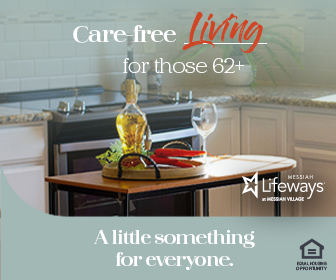So far in this three-part series, we have examined finding the right personal care home [part 1] and assisted living residence [part 2] for a loved one. Now the focus turns to nursing care, which includes skilled or intermediate nursing care, as well as rehabilitation.
Of all three levels to research this may be the most challenging and angst-ridden choice of all. Let’s face it, most people do not want to go to a nursing home, and family members can feel a great deal of guilt and trepidation during this process. At least with personal care or assisted living your parent or spouse is likely healthier and fairly independent and can embrace and even enjoy making a move. But when it comes to the point of needing nursing care, often times you may be making the primary decisions for a loved one who may be too ill or incapable of choosing on their own.
Defining Nursing Care
First, let’s clearly define nursing care. Skilled nursing provides continual daily nursing care and rehabilitation under the supervision of a physician. Examples of skilled care include physical therapy, intravenous injections, and wound care. Medicare A will pay up to a maximum of 100 days per benefit period, as long as there continues to be a skilled need within that period. Otherwise, if custodial care, like assistance with bathing, tolieting, feeding, or medication monitoring, becomes the exclusive need, it is then considered intermediate nursing care, which Medicare does not pay for. Intermediate nursing care is either private pay or covered by privately purchased long-term care insurance or by Medicaid (aka Medical Assistance) for those who qualify. And just like personal care and assisted living, the healthcare professionals involved with their care should be able to recommend whether nursing care is necessary.
A Wild and Emotional Goose Chase
First off, health care has changed and time is typically of the essence, especially when choosing a nursing home. The entire process of picking a nursing home will differ from the other two options for several reasons. First, the pace will be much faster. Most of the time with personal or assisted care, you’re not dealing with an emergency or critical placement. But with nursing, if an injury or illness occurs in the blink of an eye, the ever-shrinking time someone spends in the hospital doesn’t give you much leeway to research and choose a facility before their discharged and deemed unsafe to return home. Another issue is that you may have to negotiate or settle on a choice because of no availability, or certain facilities may not be able to meet your loved one’s needs, and in some cases insurance may influence your options. For instance, does the facility take Medicare or Medicaid? Meanwhile as you’re on this goose chase you’re likely dealing with the physical, emotional and mental complexities that you and your loved one are enduring. This is not meant to send you into a panic, but rather to provide a dose of reality that many families face after a loved one is hospitalized and or is recommended for nursing care.
If you are comfortable using a computer, which I assume you are if you are reading this, then technology can help expedite this process much faster. Just as with choosing a personal care home or assisted living, there are online resources to obtain a clear concise list of nursing homes in your area. The PA Department of Health- Nursing Care Facility Locator link provides a list county by county. It details their contact information, and you can compare the following information: non-profit versus for-profit status, number of beds, payment options, and nursing hours per resident per day. As you peruse this link, please note that the state required nursing hours per resident per day is 2.7 hours. You can also key in on the patient care and building safety inspection surveys. Medicare.gov also offers a nursing facility locater by zip code and displays the national five-star rating-system for nursing homes in your area. You can also visit eldercare.gov or call 1-800-677-1116 for more information on long-term care choices nearby.
As you begin to whittle down those choices based on the information you’ve gathered online, you can start to apply some of the previous principles to narrow the choice even further. Again to streamline the search, be sure to call for availability and ask about admission criteria and financial guidelines. Recommendations from the doctor, clergy or a social worker can at times be helpful. However, remember to ultimately make your own judgment. Next comes the all-important tour. Once you arrive for your scheduled tour, don’t be afraid to ask questions. Now is the time to ask. Also if a resident or a resident’s family allows, talk to them about the care and their experience. Take notice of your surroundings using your eyes, ears and especially your nose. Inquire about amenities on-site for your loved to go to like an activity area, gift shop, restaurant or library. Ask to talk with the activity or enrichment staff, or request an activity calendar and menu. For further questions to ask and a nursing home checklist, go to medicare.gov/NHCompare.
Once you have toured your revised list, submitted an application, and the facility has accepted your loved one and offers a bed, you will then work with their admissions department and the hospital to coordinate the sign-in and the admission itself. Be sure that you have their insurance cards and other important documents like a power of attorney and living will available for copy. And remember, this quite often is a rapidly moving process.
Plan Ahead as Much as You Can
Despite that finding nursing care is the most challenging to plan ahead for and can be a sensitive subject to discuss, be as proactive as you can be. If you recognize that a parent’s or spouse’s health is declining, doing some preliminary research can be a great help. Planning ahead also gives them a bigger role in the decision-making process, which is important in making this difficult transition. It’s also good to have several options, in case the first option has no openings. The hospital won’t let mom hang out until her first choice opens up. However, you do have the right to move her from that nursing facility to her first choice once they have an opening. Lastly, you’ll find that most facilities require an application and typically don’t have an application fee. So, if you really want get a jump on planning, submit an application ahead of time for future need. Hopefully you or your loved may never need to make that move, but if you do, you’re that much ahead of the game.
For more tips and information about choosing the right nursing home for a loved one, please contact the Coach at 717.591.7225 or email coach@messiahlifeways.org.





